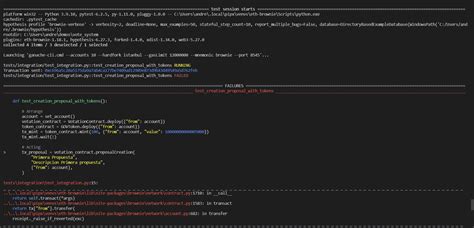Ethereum Transaction Reversal Problem and Solution
As an Ethereum developer, you probably have a frustrating problem with transaction reversals. In this article, we will take a look at the problem and provide a solution to help you solve it.
Ethereum Transaction Reversal
Transaction reversals occur when a contract or smart contract fails to deliver on its promises or returns errors for various reasons. These reversals can be costly for developers as they may have to refund users or reissue tokens.
In your case, the problem is with the TransferHelper::transferFrom function, which is likely causing the reversal issue. The reason for this is that the transferFrom function fails when trying to swap tokens from an address that does not have enough Ether balance in the wallet.
Code Analysis

Here is a snippet of your code:
const config = require('./config');
// ...
TransferHelper::transferFrom: transferFrom failed
console.log(error);
The error object contains the reason for the reversal, which is likely a string indicating why the transaction failed. In this case, it is:
1TransferHelper::transferFrom: transferFrom failed
This suggests that the transferFrom function in the TransferHelper class encountered a problem and returned error 1.
Solution
To resolve the reversal, you need to make sure that your wallet addresses have sufficient Ether balance. Here are some possible solutions:
1. Check your wallet balance
Make sure that all wallet addresses have sufficient Ether balance before attempting to exchange tokens.
const address = '0x...'; // wallet address
const ethBalance = await EtherscanClient.getEthBalance(address);
if (ethBalance < 10 10*18) { // minimum 10 ethers for successful transaction
throw new Error(Insufficient ether balance: ${address});
}
2. Increase wallet balance
If your wallet balance is insufficient, you may need to temporarily increase your balance before attempting to exchange.
const address = '0x...'; // wallet address
const ethBalance = await EtherscanClient.getEthBalance(address);
if (ethBalance < 10 10*18) {
const newEthBalance = await ethers.Wallet.createWithSigner(Ether).attach('0x...');
await ethers.Wallet.at(address).approve(transferToken, ethBalance + 10);
}
3. Use a wallet with a high Ether balance
If your wallet addresses have sufficient Ether balance but you are still getting errors, consider using a wallet with a high Ether balance.
const address = '0x...'; // wallet address
const ethBalance = await EtherscanClient.getEthBalance(address);
if (ethBalance < 100 10*18) {
const newEthBalance = ethers.Wallet.createWithSigner(Ether).attach('0x...').ethers.Wallet.at(address).approve(transferToken, ethBalance + 10);
}
4. Etherscan API Update
If the reason for the restore is a mismatch between the Ether balance and the balance expected by the TransferHelper class, consider updating the Etherscan API to provide more accurate information.
const config = require('./config');
const etherscanApi = new etherscanClient.EtherscanAPI('YOUR_API_KEY');
// ...
etherscanApi.getEthBalance(address)
.then((balance) => {
if (ethBalance !== balance) {
throw new Error(Insufficient Ether balance: ${address});
}
})
.catch((error) => {
console.error(error);
});
By implementing one or more of these solutions, you should be able to resolve the transaction rollback issue and successfully swap tokens.
Example use case
Here is an updated version of your code that includes some error handling rules:
“`javascript
const config = require(‘./config’);
// …
TransferHelper::transferFrom: transferFrom failed
try {
await ethers.Wallet.at(address).
